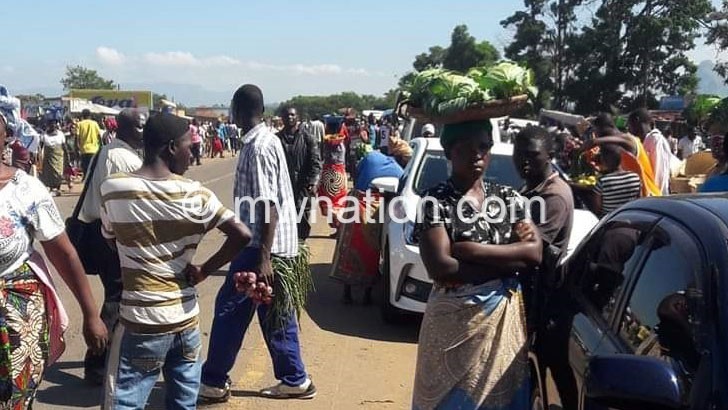Hand to mouth
Malawian households hardly have enough money to live on as they spend on average 63 percent of their incomes on food and beverages, World Bank figures have shown.
In a blog on Covid, Climate Change and Poverty: Avoiding the Worst Impacts, the bank’s lead economist Stéphane Hallegatte and senior resilience economist Brian Walsh warn that the trend could reduce people’s ability to meet their needs and throw them into the deepest poverty in the event of rising food prices.

Said Hallegatte: “Food security is the priority for action because very poor people spend a large share of their budget on food. In Malawi, households spend on average 63 percent of their income on food and beverages.
“For such people, even a small increase in the price of food can reduce their ability to meet their needs and throw them into the deepest poverty. But improving global food security also requires ensuring that food goes where it is needed.”
In richer regions, like Latin America or East Asia, households are better able to cope with more expensive food. In Brazil for instance, World Bank figures show that households spend only 23 percent of their income on food.
A World Bank Policy Research Working Paper Vulnerability to Poverty Following Extreme Weather Events in Malawi show that during weather shocks, an average of 43 percent of households report unusually high food prices.
As a consequence, drought in the growing season reduces consumption per capita (without aid) in the months following harvest by five to 12 percentage points while excess rainfall in the first two months of the growing season (November– December) decreases food consumption per capita by 1.8 percent for each day of excess rainfall in that period.
The analysis shows that in the drought years of 2004/5 and 2016/17, about 58.5 percent of Malawians were vulnerable to poverty.
Similarly, in 2010/11 some 59.3 percent of Malawians were vulnerable.
In an interview, the Polytechnic economics associate professor Betcheni Tcherani said while 63 percent could be on a higher side percentage wise, more people along the bracket could be earning less; hence, more money spent on consumption.
“This is something to do with responsible expenditure, but what is important is to look at how much money they get,” he said.
Malawi developed the National Resilience Strategy (2018 – 2030) with the view that weather-related shocks will likely increase in frequency and severity due to climate change, their impacts will be greater unless root development challenges relating to environmental degradation, population pressures, multi-dimensional poverty and agricultural growth are tackled in a more coordinated and multi-sectoral manner.
The NRS aligns with the MGDS III, the Malawi Social Support Programme II, the National Agriculture Investment Plan 2017/18-2022/23, the National Multi-Sectoral Nutrition Policy 2017-2022, the National Climate Change Policy, 2016, and the National Gender Policy.




